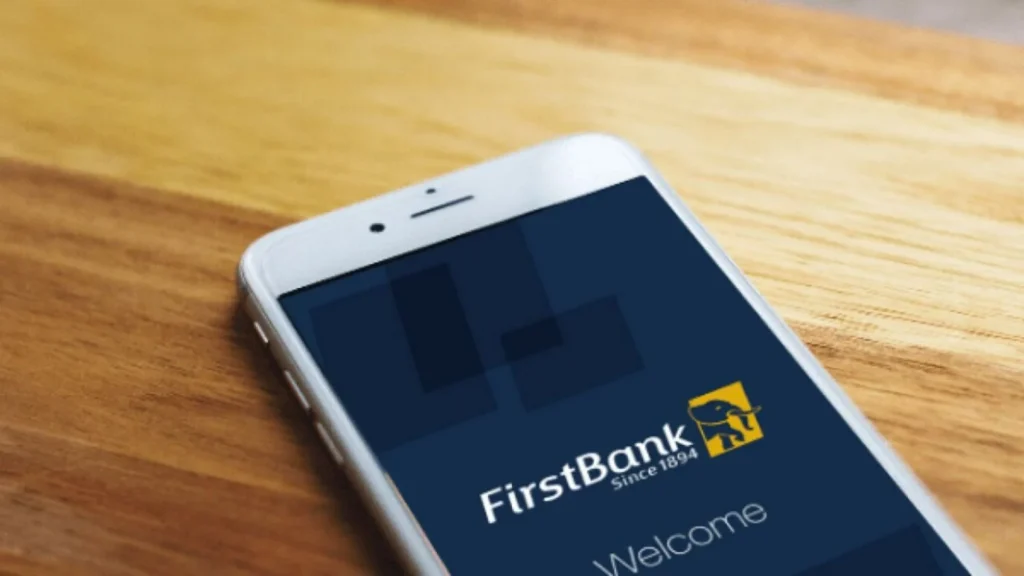It’s 7:42 a.m. and Amina is late for work, but worse, she can’t pay her child’s school fees. Her FirstMobile app keeps spinning. She dials *894# and gets nothing. The vendor is fidgeting. Around the city, other customers see the same thing: failed transfers, spinning wheels, and mounting anxiety.
If that sounds familiar, you’re not alone. The First Bank of Nigeria (FirstBank) acknowledged a temporary service disruption affecting its digital channels, including its mobile app and USSD, and warned customers some transactions to other banks could be delayed or declined.
Below is a practical, safety-first guide you can use now: why the outage happened (briefly), the confirmed facts, reliable alternatives you can use immediately, and precise steps to recover money or correct failed transactions.
The Warning
* FirstBank publicly confirmed downtime affecting its mobile banking platforms and USSD services — customers were warned of delayed or declined transactions.
* The bank advised customers to use alternative channels for urgent transactions while it worked to restore services.
* FirstBank later posted that services were restored after the disruption. If things still look wrong on your account, follow the steps below.
(Those are the core, verifiable facts. Everything that follows is practical help based on bank guidance, Central Bank/NIBSS rules on reversals, and agent-channel operations.)
Fast Alternatives You Can Use Right Now
1. ATM (card) withdrawals and transfers — Use your debit card at a FirstBank ATM or another bank’s ATM. On-us ATM reversals are usually instant; cross-bank ATM reversal timelines are covered by the CBN rules.
If a card transaction fails but money leaves your account, keep the debit alert and get a transaction reference.
2. POS (merchant) payments — Many shops and petrol stations accept card/POS payments. If the merchant accepts POS, paying by card avoids the bank app altogether.
3. Firstmonie agent banking — FirstBank’s agent network (Firstmonie) lets you deposit, withdraw and transfer cash via local agents — useful in areas with poor internet access or during outages. Ask for an official receipt.
4. Branch visits for critical transactions — For urgent or high-value matters (school fees, rent, payroll), go to a branch and complete the transaction in person. Bring ID and transaction details.
5. Third-party mobile wallets and fintechs — If you have money in a reputable wallet (e.g., a licensed mobile money or payments app), you can pay merchants or move cash through interoperable channels. Be mindful of fees and transfer limits.
6. Card-on-file / Merchant transfers — If a biller (school, utility) accepts card payments on their website or payment link, use your debit/credit card there rather than the bank app.
If Your Money Was Debited But The Transfer Failed — Do This
1. Wait up to 24 hours for instant reversal — many banks and the CBN timelines provide for automatic reversals within hours; some failed cross-bank reversals may take longer but should be resolved promptly.
2. Capture proof — save screenshots of debit alerts, failed transaction screens, and timestamps. These are vital for escalation.
3. Check your balance — confirm whether the debit actually reduced your available balance.
4. Use FirstBank complaints channels — open a complaint via the FirstBank complaints portal, email, or call FirstContact (numbers and complaint form are on the bank’s site). Put dates, amounts, beneficiary details and attach screenshots. FirstBank’s complaints pages list phone numbers and an online complaints form.
5. Escalate to IDRS/NIBSS if needed — where cross-bank switching delays persist, NIBSS/IDRS can be engaged to accelerate reversals. Keep your complaint ticket number.
6. If unresolved after a reasonable time, involve the CBN — the Central Bank and its consumer protection mechanisms can be approached if banks don’t meet reversal timelines or resolution policies. The CBN has published reversal timelines for failed transactions.
Also Read: WAEC Mandates 250 Laptops, CCTV and Generators for Schools Ahead of 2026 CBT Exams
Digital banking outages aren’t just annoying — they expose systemic risk in economies that rely on instant payments. The CBN has clear rules on failed transaction reversals precisely because outages can cause real economic harm to households and small businesses.
Banks are expected to resolve reversal issues quickly and provide clear complaint paths; you can use those obligations if you need to escalate.
What FirstBank Customers Should Expect Next
* Status updates: FirstBank typically posts updates on its official social accounts and customer circulars while engineering teams work. Check the bank’s verified X/Twitter or official website for “we are back” posts. (FirstBank posted service restoration after a recent outage.)
* Transaction reconciliation: If you were affected, keep your proofs and lodge a complaint — banks log and investigate, and many reversals are automatic once systems stabilise.







